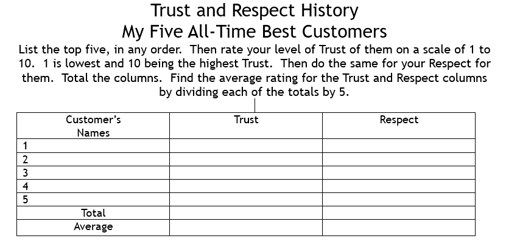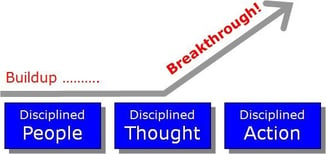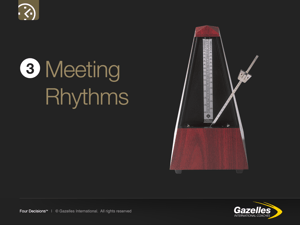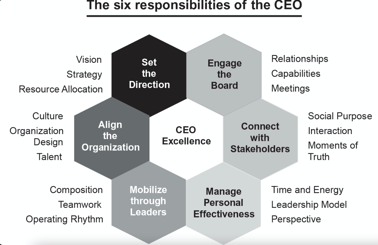 People with unresolved conflicts can challenge your customer service.
People with unresolved conflicts can challenge your customer service.
These customers are impossible to resolve their issues.
They refuse to resolve things and find new issues after previous ones are resolved.
They waste your time. If you do decide to work with them, they end up wasting your team’s time.
They are “the customer from Hell!”
How can you discover which customers have unresolved conflicts, and avoid them?
While working in radio I discovered Jacques Werth’s (High Probability Selling) process called Trust and Respect. Trust & Respect identifies customers who have conflicts before you do business with them.
Trust and Respect is a regression question process used by psychiatrists to help them identify patients’ issues and work to resolve them.
If you can ask questions, listen, and show interest, you can discover whether someone has unresolved conflicts.
There are several obstacles to Werth’s method:
- Know where you are going with your questions. In the download summary or T&R Inquiry Process: You learn never to conceal your personal agenda. If your personal agenda is anything except determining whether you trust and respect the prospect, the process will not work. On the surface, the questions appear to be relationship building, yet deeper and more personal than most salespeople would ask in building rapport with their prospects.
- It requires 15-30 minutes to achieve rapport and discovery. (If you’re new, it may require lengthier discovery.)
- You may feel uncomfortable asking the questions, especially when you discover the person has Unresolved Conflicts.
I’ve rarely found anyone who had difficulty with the questions. People rarely are asked these questions. When asked sincerely and with interest, few object. When someone does object, for example, one person asked, “What’s this have to do with the coaching process?” it indicates they prefer not to answer. They may want to hide something.
Your Best Customers Are People You Trust & Respect
If you ranked your best customers on a scale of 0-10 with 0 being no trust and respect, and 10 being the highest trust and respect imaginable, your best customers are those you would give a ten. Conversely, they would probably give you a ten as well.
While the questions dig deep and ask for insight into the prospect’s lives, the bonus is once you’ve completed the questions and discovered whether the person has an unresolved conflict (most don’t), you gain a deeper sense of rapport and trust in your relationship than anyone competing for the business could achieve.
Relationship building is a prime component in getting the sale.
If you discover they have an unresolved conflict, simply bow out of the sales process, saying, “I don’t feel we’d be a good fit for you.”
Trust & Respect
Download the lengthier T&R Inquiry Process for more details on how to use this.
 Once you begin down the path of regression, getting the prospect to open up about things in their history, you slowly move them back in time until you get to preadolescence. (Age 6-9 is ideal) At that point ask questions about their relationships. What was it like growing up in your family? How did you get along with your brothers, sisters, your parents? Give me an example of a conflict you might have had with your brother or sister, your parents. How did it get resolved? Who was the disciplinarian in your family? Give me an example of when you were younger what you might have been disciplined for?
Once you begin down the path of regression, getting the prospect to open up about things in their history, you slowly move them back in time until you get to preadolescence. (Age 6-9 is ideal) At that point ask questions about their relationships. What was it like growing up in your family? How did you get along with your brothers, sisters, your parents? Give me an example of a conflict you might have had with your brother or sister, your parents. How did it get resolved? Who was the disciplinarian in your family? Give me an example of when you were younger what you might have been disciplined for?
Discover a conflict. How it worked through may uncover this person is still bitter or holds a grudge against the person they had the conflict with. That’s your indication they have an unresolved conflict.
At times you may find they have unresolved conflicts with a brother, sister, or parent. They recognize it, worked to resolve it, and accepted the situation as unresolvable, choosing to avoid continuing the relationship.
In my regression, I was preschool age. It was my turn to do the laundry with my mom. I’d been able to get out of it until my mom remembered my brother had done it last time. I was upset. During a break in cleaning our dirty underwear, I went outside, approached my brother, and told him mom had given me permission to slap him. When it was discovered what I did I was punished severely.
The lesson stuck. I’ve never struck anyone again.
Discover Conflict
 Jacques shared his story about an unresolved conflict. A friend of his asked him to have dinner with a group of brothers who he was considering buying their scrap metal business. Jacques used trust and respect questions to ask the brothers about their history. They revealed they’d worked for their father in his scrap metal business, always being promised they would receive a share of the business once it achieved a certain level of profit. Year after year it failed to do so. They revealed how the scrap metal business was cutthroat and it required doing several things dishonestly, including making the scale lighter when scrap metal came in, and heavier when it went out so they could increase their prices and make a profit. After many years of working with their father, the brothers discovered he’d been cheating them all along and the business had achieved its profit standards, but their father had lied to them about it. That’s when they decided to start their own business. Suddenly one of the brothers said, “I know why you’re asking all these questions!”
Jacques shared his story about an unresolved conflict. A friend of his asked him to have dinner with a group of brothers who he was considering buying their scrap metal business. Jacques used trust and respect questions to ask the brothers about their history. They revealed they’d worked for their father in his scrap metal business, always being promised they would receive a share of the business once it achieved a certain level of profit. Year after year it failed to do so. They revealed how the scrap metal business was cutthroat and it required doing several things dishonestly, including making the scale lighter when scrap metal came in, and heavier when it went out so they could increase their prices and make a profit. After many years of working with their father, the brothers discovered he’d been cheating them all along and the business had achieved its profit standards, but their father had lied to them about it. That’s when they decided to start their own business. Suddenly one of the brothers said, “I know why you’re asking all these questions!”
The meeting quickly ended, and upon escaping out of the restaurant, Jacques’ friend offered “I’m so glad I brought you with me. I can’t believe I ever wanted to do business with those people. I’m happy to have avoided that!”
You Can't Win
People with unresolved conflicts are impossible to please. They constantly use you, or anyone else to attempt to resolve a conflict from their childhood that remains unresolved. Having not resolved them, they attempt to find a resolution with you.
You cannot win, because even if you gain resolution, their unresolved issues will bring them back with another issue to prove their right.
To create an environment where everyone is inspired to give their best, contact Positioning Systems today to schedule a free exploratory meeting.
Growth demands Strategic Discipline.
 Building an enduring great organization requires disciplined people, disciplined thought, disciplined action, superior results, producing a distinctive impact on the world.
Building an enduring great organization requires disciplined people, disciplined thought, disciplined action, superior results, producing a distinctive impact on the world.
Discipline sustains momentum, over a long period of time, laying the foundations for lasting endurance.
 A winning habit starts with 3 Strategic Disciplines: Priority, Metrics, and Meeting Rhythms. Forecasting, accountability, individual, and team performance improve dramatically.
A winning habit starts with 3 Strategic Disciplines: Priority, Metrics, and Meeting Rhythms. Forecasting, accountability, individual, and team performance improve dramatically.
Meeting Rhythms achieve a disciplined focus on performance metrics to drive growth.
Let Positioning Systems help your business achieve these outcomes on the Four most Important Decisions your business faces:
|
DECISION |
RESULT/OUTCOME |
|
PEOPLE |
|
|
STRATEGY |
|
|
EXECUTION |
|
|
CASH |
|
Positioning Systems helps mid-sized ($5M - $250M+) businesses Scale-UP. We align your business to focus on Your One Thing! Contact dwick@positioningsystems.com to Scale Up your business! Take our Four Decisions Needs Assessment to discover how your business measures against other Scaled Up companies. We’ll contact you.
NEXT BLOG – Conducting the Orchestra – Your Business
Netflix’s Reed Hastings view of the orchestrator role as CEO: “You need to build the decision-making muscles throughout the organization so that the leader makes fewer decisions. I’ve said before, ‘A perfect quarter for me would be one where I’ve made no decisions.’ I haven’t yet had that.” Next blog we explore the CEO as the orchestrator from CEO Excellence: The Six Mindsets That Distinguish the Best Leaders from the Rest.






.jpeg?width=150&height=135&name=Hand%20with%20marker%20writing%20the%20question%20Whats%20Next_%20(1).jpeg)

